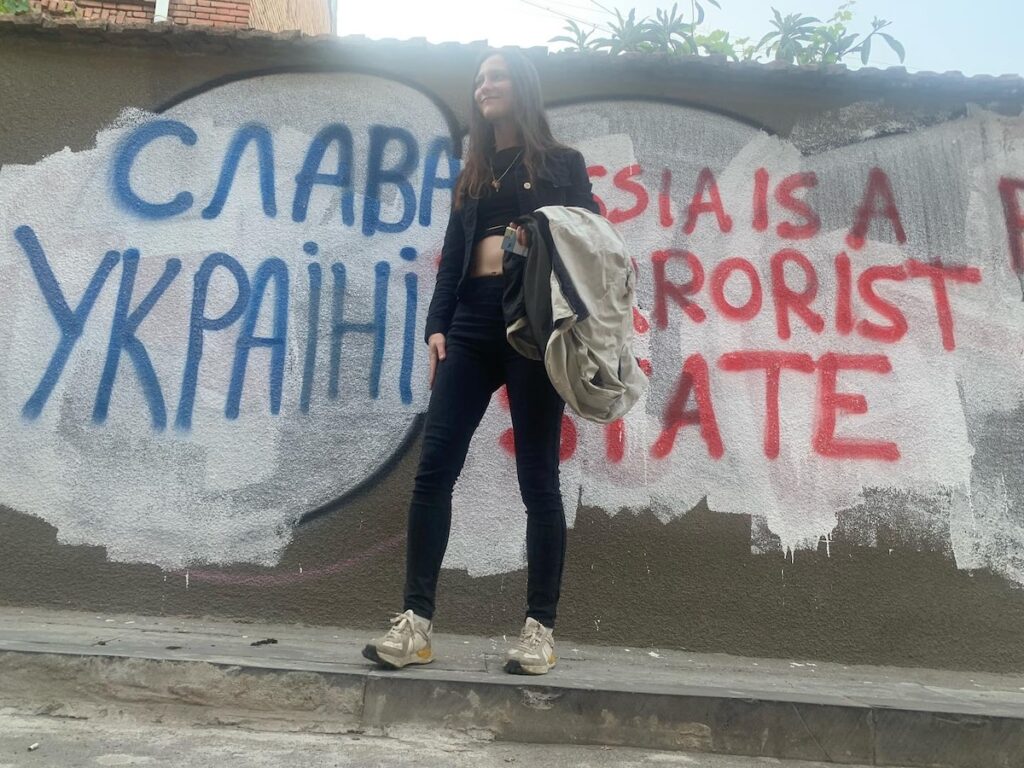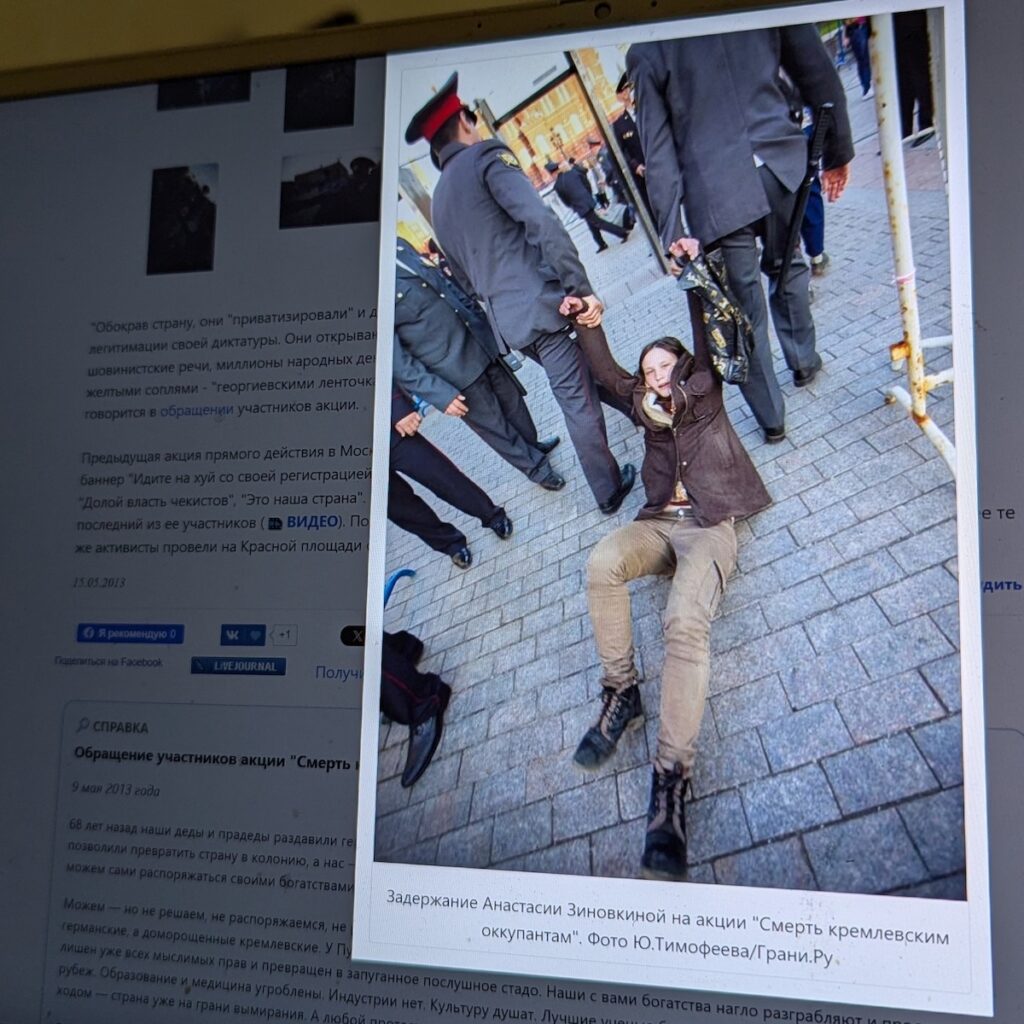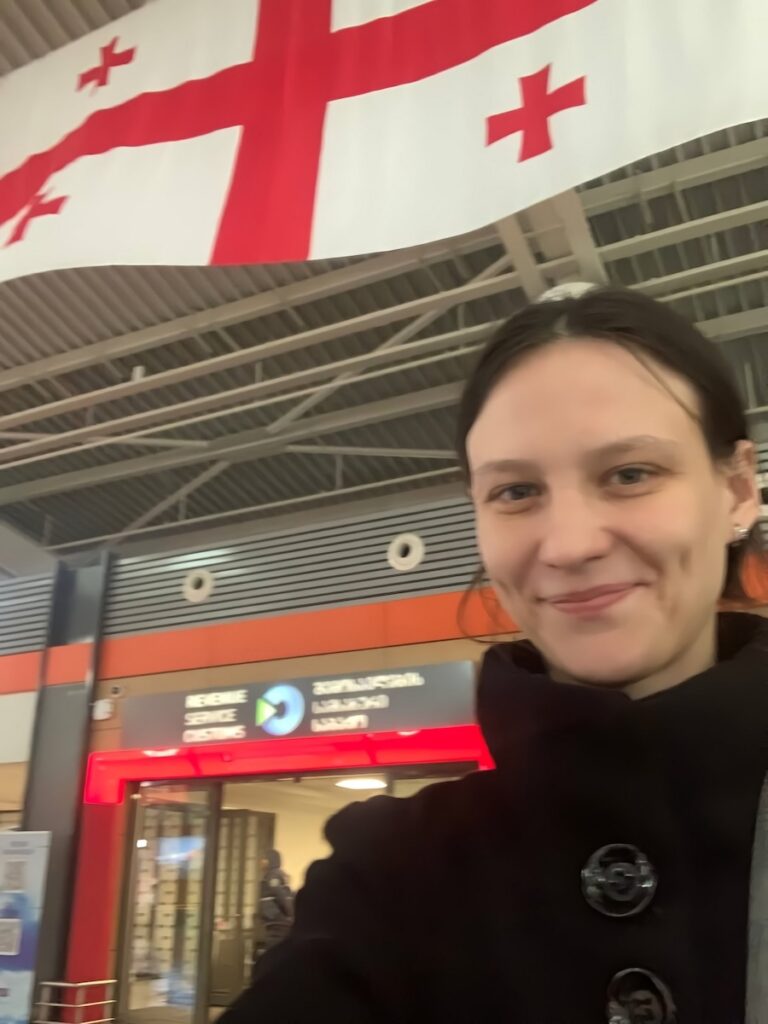Two Russian activists sentenced to 8.5 years in Georgia on drug possession charges
Two Russian activists sentenced in Georgia
Two Russian citizens, Anastasia Zinovkina and Artyom Gribul, have been sentenced in Georgia to eight and a half years in prison on drug possession charges. Both say they are political prisoners and argue that the Georgian authorities are in fact punishing them for taking part in the November–December 2024 protests.
In her emotional closing statement, Zinovkina announced that she was starting a hunger strike, demanding the release not only of herself and Gribul, but also of another Russian activist, Anton Chechin, who is also in custody on drug charges.
“They put me in prison, but they can’t even be bothered to judge me fairly, by law. We are not prisoners, we are hostages. Hostages who have been buried alive. Let’s call things by their names – we are captives.
I want everyone who knows me, my friends and acquaintances, to pay attention to what is happening in Georgia. Please support the young people standing on Rustaveli Avenue, just as they stand with us. Help get rid of the terrorists who are persecuting not only us and our friends, but the entire people. They want to intimidate and destroy everyone. If you can, do this as a sign of respect for me. I appeal to everyone who loves me: please, save the future of this country and its people,” Zinovkina said in court.
For several months, Zinovkina has claimed that police officers insulted and sexually harassed her during her arrest, but investigators have refused to examine her statements.
Activism in Russia and a troubled fate
This is not the first time 31-year-old Zinovkina has been targeted by the authorities. Since 2012 she has taken part in various protest actions in Russia and faced persecution as a result.
She left Russia at the end of 2022, saying that staying in her homeland had become unbearable for political reasons.

Artyom is an IT specialist. He met Anastasia in Armenia in 2023, and the two later moved together to Georgia.
According to Zinovkina, their arrival in Georgia was not planned — they had been preparing to move to Brazil, taking their cats with them. But as the paperwork for the animals dragged on in Armenia, a friend advised them to try arranging it in Tbilisi instead.

When they arrived in Tbilisi at the end of 2024, mass protests had just begun. Both Russian activists joined in voluntarily — handing out hot coffee and tea and giving first aid to the injured.
They were arrested together on 17 December. According to prosecutors, a search found 16 grams of the powerful drug alpha-PVP in their possession. Under Georgian law, possession of this substance carries a sentence of eight to 20 years in prison, or even life imprisonment.
Both insist the drugs were planted.

Their arrest, they say, was marked by multiple procedural violations as well as threats and violence from police.
There is no video of the arrest or of the discovery of the drugs in the case file.
Police claim the pair were detained following a tip from an anonymous informant.
Under the law, a search based on operational information must be backed up by neutral evidence — such as a video recording made during the search or the presence of an independent witness, for example a passerby. In this case — as in four other recent drug cases — no such evidence or witnesses exist.

In the same days, four more demonstrators were arrested on drug possession charges, including another Russian citizen, Anton Chechin.
Notably, the cases of those arrested on drug charges are almost identical, yet the sentences handed down to Russian nationals differ sharply from those given to Georgian citizens. Nika Katsia, Tedo Abramov and Giorgi Akhobadze were acquitted and released on the same charges.
By contrast, Anastasia Zinovkina and Artyom Gribul were sentenced to eight and a half years in prison, while Anton Chechin — who is battling cancer — received four years.
Human rights defenders and lawyers describe the trial as politically motivated.
- According to civil society and human rights groups, more than 60 people in Georgia today can be considered political prisoners.
- Since 28 November 2024, pro-European rallies have been taking place in Tbilisi and other cities, demanding new parliamentary elections and the release of those detained in earlier protests. The demonstrations were sparked by the ruling Georgian Dream party’s 28 November 2024 decision to postpone talks on EU membership “until 2028.”
Two Russian activists sentenced in Georgia
News in Georgia


















